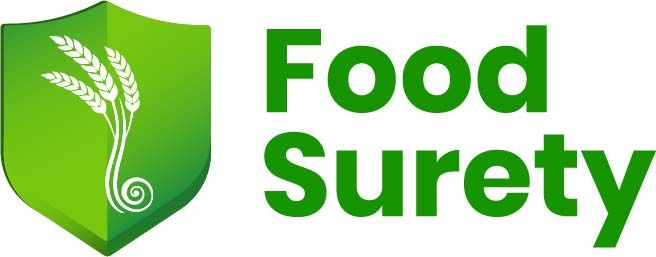Food Safety Culture Training - BRCGS Approved Course

Course Overview
Why Food Safety Culture Training? Food safety systems on paper or drive do not produce safe food, people do. Asking someone or even training them to follow a certain procedure will not necessarily achieve objectives and, importantly, consistent results. Hence, the importance of developing a culture at the workplace where everyone is motivated and even proud to do what is right in regards to producing safe food protecting consumers and brands.
"An Approach to Product Safety Culture" is an approved BRCGS training Course that is industry focused, considering organisational culture, leadership and behavioural concepts; inclusive of and generic to all BRCGS Global Standards, and other GFSI certification programmes, regardless of business size or whether sites have a product scope of food or non-food related goods/ services.
BRCGS Training
Training Format
- Classroom
- Virtual
- In-house
One Day
9am to 5pm
Group Bookings
Contact us
Training Certification
BRCGS/Food Surety Certificate


Why Food Safety Culture Training Matters
-
Achieving food safety buy-in is challenging
-
Inconsistency in following food safety practices, procedures and doing the right things can harm consumers.
-
Inconsistency harm brand's reputation too and increase food safety compliance cost.
-
Every workplace has a culture, the same apply to any food industry organisation, it is what we learn from the group,weather you like it or not!
Become a food protection catalyst!
Food protection is the responsibility of everyone at the workplace, and everyone is affected by the groups they belong to.
Understand the impact of attitudes and behaviour on product safety culture and how to influence these to drive positive change
Learn how to prepare a a Food Safety Culture Plan and how to engage others in it.
Understand the impact of attitudes and behaviour on product safety culture and how to influence these to drive positive change
Learn how to prepare a a Food Safety Culture Plan and how to engage others in it.
BRCGS Training and certification
Food Surety is a BRCGS Approved Training Partner and this course is an official BRCGS course
Benefits of Our Food Safety Culture Training
-
Gain the fundamental understanding of the importance of a strong product safety culture at a site and the important role played by senior management leadership
-
Understand the importance of attitudes, behaviours, shared values & beliefs and norms that affect food safety culture and demonstrate preparatory steps in developing a Product / Food Safety Culture Plan
-
Understand an approach to food safety culture assessment that will help you measure where it is today at your food business, identifying internal benchmarking requirements to guide the actions to be prioritised in your Food safety culture plan.
-
Involve team members, encourage their best practices and employee engagement.
What You’ll Learn in This Course
-
Describe the concept of Product Safety Culture and why a positive culture is important to ensuring product safety and integrity
-
Identify what the standards require, and the function of product safety culture Plan within a QMS
-
Recognize the link between behaviour, product/food safety culture and how it underpins product safety assurance
-
Discuss how to measure product/food safety culture through the use of tools and techniques
-
Develop a sustainable Product Safety Culture action plan and how to engage staff to support it
Course Investment
What is the actual cost of a negative food safety culture? It can be costing you a great deal already!
This investment in your senior management teams, technical managers and personnel, operation managers, supervisors, quality assurance and compliance personnel, auditors, HR personnel,... is a winning investment for your organisation.
Imagine engaged teams taking pride in doing what is right with confidence consistently.
This investment in your senior management teams, technical managers and personnel, operation managers, supervisors, quality assurance and compliance personnel, auditors, HR personnel,... is a winning investment for your organisation.
Imagine engaged teams taking pride in doing what is right with confidence consistently.
Price: NZ$687 +GST (per person)
What’s Included in This Course
-
Learning methods
-
precourse short reading
-
Presentation and workbook
-
Videos
-
Practical exercises on building food safety culture plan
-
Live discussions
-
Links and resources
-
-
Who is it for?
-
Technical Managers, Quality assurance Managers & personnel
-
Operations Managers
-
Human Resources personnel
-
Auditors and BRCGS Professionals
-
Anyone involved in implementing or managing product safety culture
Assessment
To complete the course, food companies' participants will need to submit a product safety action plan as a workplace assignment, meeting the assessment criteria with 75% as a passing grade
Certificate of Achievement
Completing this course you achieve BRCGS Certificate of Achievement.
5.0 Reviews
Katrina Jones
Group QA Manager
Group QA Manager
Teresa Bae
QA Assistant Manager
QA Assistant Manager
Raffaela Dragani
QA Manager
QA Manager
Upcoming Training Dates
Thank you!
Related Courses
Your Trainer
Ray Haddad
I am the Trainer & Managing Director at Food Surety Limited. I have worked in the food industry in quality assurance roles, auditing, consulting, training, instructional design, workplace assessment and as an advisor in international food safety projects. This varied experience has given me a depth of understanding of the needs and the pain points among the different parties in the food industry.
Since 2007, I've had a proven track record conducting hundreds of audits including external 3rd party certification audits as an auditor/verifier recognised by the New Zealand Ministry for Primary Industries (MPI). In addition, I have trained thousands of food professionals from government agencies, NGOs, academia and businesses across the whole supply chain from farm to fork and across the different sectors, not only in New Zealand but in Southeast Asia and Middle East.
I am driven by food professionals' experiences of light bulb moments and breakthroughs in their thinking. I enjoy supporting them protecting food for all.
Since 2007, I've had a proven track record conducting hundreds of audits including external 3rd party certification audits as an auditor/verifier recognised by the New Zealand Ministry for Primary Industries (MPI). In addition, I have trained thousands of food professionals from government agencies, NGOs, academia and businesses across the whole supply chain from farm to fork and across the different sectors, not only in New Zealand but in Southeast Asia and Middle East.
I am driven by food professionals' experiences of light bulb moments and breakthroughs in their thinking. I enjoy supporting them protecting food for all.


The why of food safety culture training!
Food Companies' systems and policies don't produce safe & suitable food, your team does!
We have invested a lot in creating a food safety management system, we do understand local regulatory requirements as well as food safety standards to the like of FSSC22000, we do receive a number of food safety audits too, do we still need to focus on culture too?The answers is simple, a food safety management system and documented standard operating procedures is not enough, people produce safe food and they have shared values & beliefs as well as shared norms that affect how they commit to doing what's right, especially when no one is watching.
Understanding and measure food safety culture at your workplace and actively enhancing it will reduce, errors, cost and food waste, will improve moral, employee engagement and retention, all sounds good right.
Its not about another course, or another action plan, its about practical and SMART goals and actions that will help you to get to a sustainable positive food safety culture. This is what is on offer in this official BRCGS course. It suits sites certified to other Global Good Safety Initiative GFSI certification programmes too.
Understanding and measure food safety culture at your workplace and actively enhancing it will reduce, errors, cost and food waste, will improve moral, employee engagement and retention, all sounds good right.
Its not about another course, or another action plan, its about practical and SMART goals and actions that will help you to get to a sustainable positive food safety culture. This is what is on offer in this official BRCGS course. It suits sites certified to other Global Good Safety Initiative GFSI certification programmes too.

Are virtual classroom online courses as good?
"The course that I participated in was meant to be in person however like a lot of things lately had to be changed to a virtual Training course.
Ray (Course facilitator) was easily the most competent and engaged facilitator that I have seen on not only Zoom but Food Safety. The course meet all expectations and it had a decent assessment at the end of it (harder than normal but enjoyed it) Ray even gave his time to discuss the assessment and was very receptive to feedback.
I didn't know Food Surety before today and now I wont forget them." Matt Bowker
Ray (Course facilitator) was easily the most competent and engaged facilitator that I have seen on not only Zoom but Food Safety. The course meet all expectations and it had a decent assessment at the end of it (harder than normal but enjoyed it) Ray even gave his time to discuss the assessment and was very receptive to feedback.
I didn't know Food Surety before today and now I wont forget them." Matt Bowker
Price: NZ$790/Person (Including GST & Fees)
Building a food safety culture training in New Zealand, official BRCGS course
What is Food Safety Culture?
"A company’s food safety culture is the shared values, norms and beliefs that affect mindsets and behaviours toward food safety in, across and throughout a company" (Global Food Safety Initiative GFSI, position paper)
What does GFSI expect when it comes to food safety culture and senior management commitment?
How do you drive positive change within the organisation?
Is this an official BRCGS training delivered New Zealand wide?
Yes, it is. Food Surety is a BRCGS Approved Training Partner. So at the end of the course you get an Attendance Certificate and after successfully completing the post course assignment, you get an achievement Certificate. Completing the assignment and obtaining the achievement certificate is not mandatory.
Why Food Surety's Product Safety Culture training courses?
This course is a comprehensive, full day course that will arm you with the knowledge and skills that will support you building a positive and strong food safety culture at your workplace. While it is a BRCGS official certification, it also suits organisations with other certifications like FSSC22000 and SQF, IFS and Woolworth supplier excellence programme and more.
How to enhance food safety culture in food businesses?
In general, the following is needed to build a positive food safety culture:
- Management commitment: the site’s senior management shall define and maintain a clear and effective plan for the development and continual improvement of a product safety and quality culture.
- define activities involving all sections of the site that have an impact on product safety and quality
- describe how the activities will be undertaken and measured, and the intended timescales
- review of the effectiveness of completed and ongoing activities.

